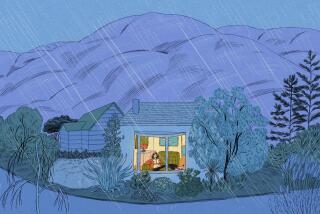‘Only Children’ Leading Happy Lives
- Share via
I’ve just spent the weekend reading through a small portion of the thousands of questionnaires you’ve returned to psychologist Bill Campbell, who is researching a book on the “only child.”
The questionnaire was long: 50 questions, many of them open-ended. Bill can’t thank you enough for your generous hours of reflection on the meaning of growing up “alone.”
Most “onlys” seemed to enjoy participating in the survey. “I am surprised at the ‘can of worms’ this opened for me,” one woman said. “Several of my earlier ideas about myself have changed--for the better.”
Campbell’s book can’t come out for several years at least. Much of the data has to be sorted and correlated through a computer, control studies may be needed, and in-depth interviews may be done, etc. But since I got you into this, I owe you a preliminary report.
Please understand that these are only my impressions from reading a random portion of the survey:
The early questions attempted to discover if only children are parented in any special way. Was the home centered around the child, for example? Which parent assumed what role, and how strict or indulgent were they?
Perhaps the computer will find a pattern here, but I couldn’t. A majority of the only children greatly savored the fact that they got all their parents’ love and attention, but few believed they were spoiled. Many reported that their parents went out of their way to see that that didn’t happen.
Nor could I find any pattern of loneliness. Perhaps in compensation for not having siblings, only children seem to get involved in group activities very early. A few had an imaginary playmate.
By high school, a few identified themselves as loners, but the great majority were good to superior students and fairly popular. When asked, on a scale of 1 to 10, how happy they had been as a child, the answers averaged 6 or 7, by my rough calculation.
Now that’s not bad. Is a child with brothers and sisters going to feel a lot better? In other words, when you look at hundreds of lives, it’s hard to see any automatic disadvantage in growing up as an only child.
On the contrary. Earlier studies have shown that only children and first-borns develop high self-esteem and thus become great achievers as adults. I could see this very clearly. At least three-quarters of my sample were very pleased with their material success.
The real surprise in the survey, however, lies in another area. A large majority of the only children reported themselves to be very happy as well as successful. Apparently they got tuned in to the adult world early enough, and developed enough ego strength, to take charge of their emotional lives, too.
How do you measure “happy” in a questionnaire? Campbell asked: On a scale of 1 to 10, how well have you been able to satisfy your emotional needs? Using the same scale, how successful do you rate your marriage or primary relationship?
For about 80%, the marks were astonishingly high--many 9s and 10s. This was true even for many who saw their own parents’ marriage as disastrous.
Other answers confirmed these positive attitudes--there are surprisingly few divorces reported in the sample, for example.
When asked to sum up, most only children said they would like to have more “family” now--especially a brother or sister to share responsibility for aging parents. A minority had any real regrets about growing up as the star of the show.
What would they recommend to young couples now, especially if the mother wants to keep working? “Everything is a trade-off,” one man said, “but I don’t think an only child gets hurt. I loved it.”
More to Read
Sign up for Essential California
The most important California stories and recommendations in your inbox every morning.
You may occasionally receive promotional content from the Los Angeles Times.













